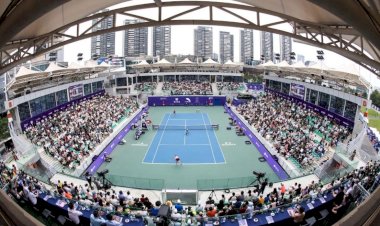Qatar deports migrant workers protesting unpaid salaries constructing World Cup stadiums
Qatar has deported migrant workers who have been protesting to demand they are paid their wages ahead of the World Cup which will be held in Doha in November

Estimated reading time: 6 minutes
On 14 August some 60 workers gathered outside Al Bandary International Group's Doha offices, according to AP, and blocked part of Doha's C Ring Road.
The workers, who were from Bangladesh, India, Nepal, Egypt and the Philippines, said some of them had not been paid for seven months.
The Qatari government has said they have been detained and deported for breaching public security laws.
The protesters were arrested and taken to a detention centre where one of them called Equidem, a research centre specialising in human and labour rights.
He said that the prisoners were forced to sleep without air conditioning and that some had been paid their salaries after the protests whilst others hadn't.
In May Human Rights Watch (HRW) launched the PayUpFifa campaign, which called on FIFA to establish and contribute towards a remedy fund – $440 million to match the Qatar 2022 prize money – to be used as compensation for migrant workers who have suffered in the lead up to the tournament.
In August, Adidas became the first FIFA sponsor to support the call.
According to HRW, since 2010, when FIFA awarded Qatar the 2022 World Cup, thousands of workers have died and had their wages stolen by employers.
"FIFA has failed to meet its human rights responsibilities, and Qatar its obligations, to both prevent such abuses and to provide adequate remedy to victims and their families," said the rights watchdog.
Migrant labourers have built roughly $220 billion worth of infrastructure needed for the tournament to go ahead, including eight stadiums, new hotels and highways to connect the stadiums.
When it granted Qatar the World Cup, FIFA did not put in place any protection or conditions for the treatment of migrant workers. Labourers have died in the process from heat stroke and poor working conditions.
Source: Middle East Monitor under CC BY-NC-SA 4.0
What's Your Reaction?
























